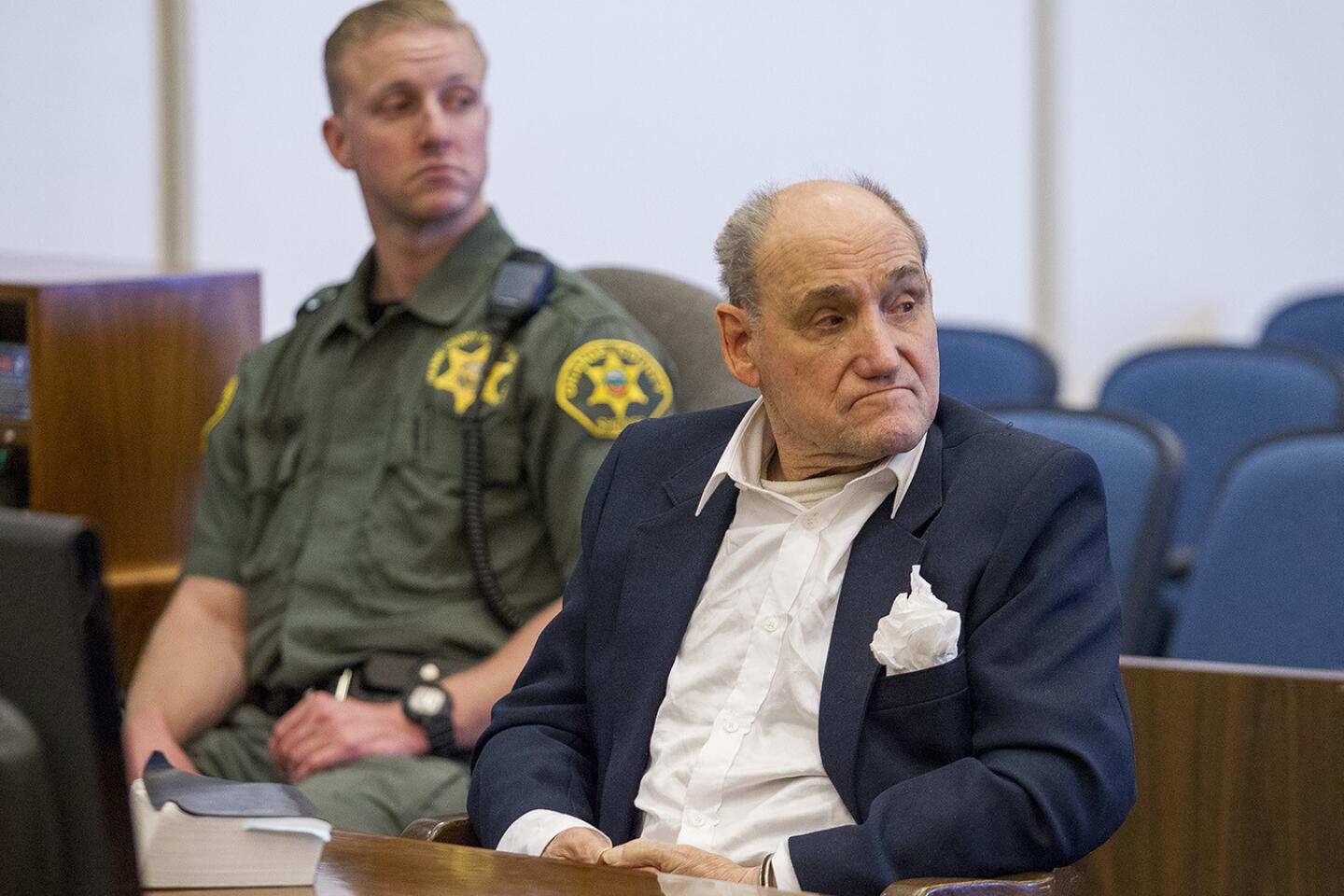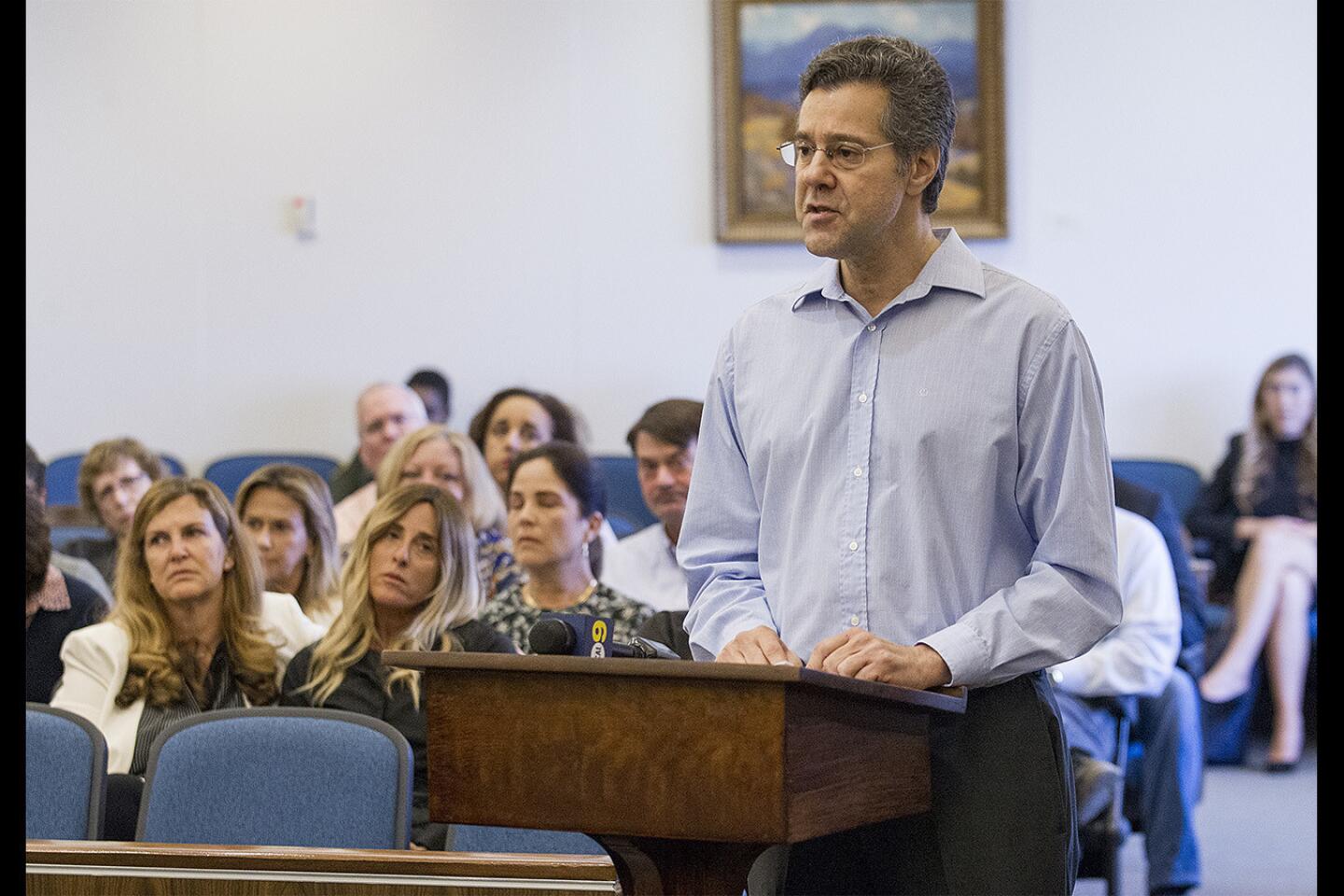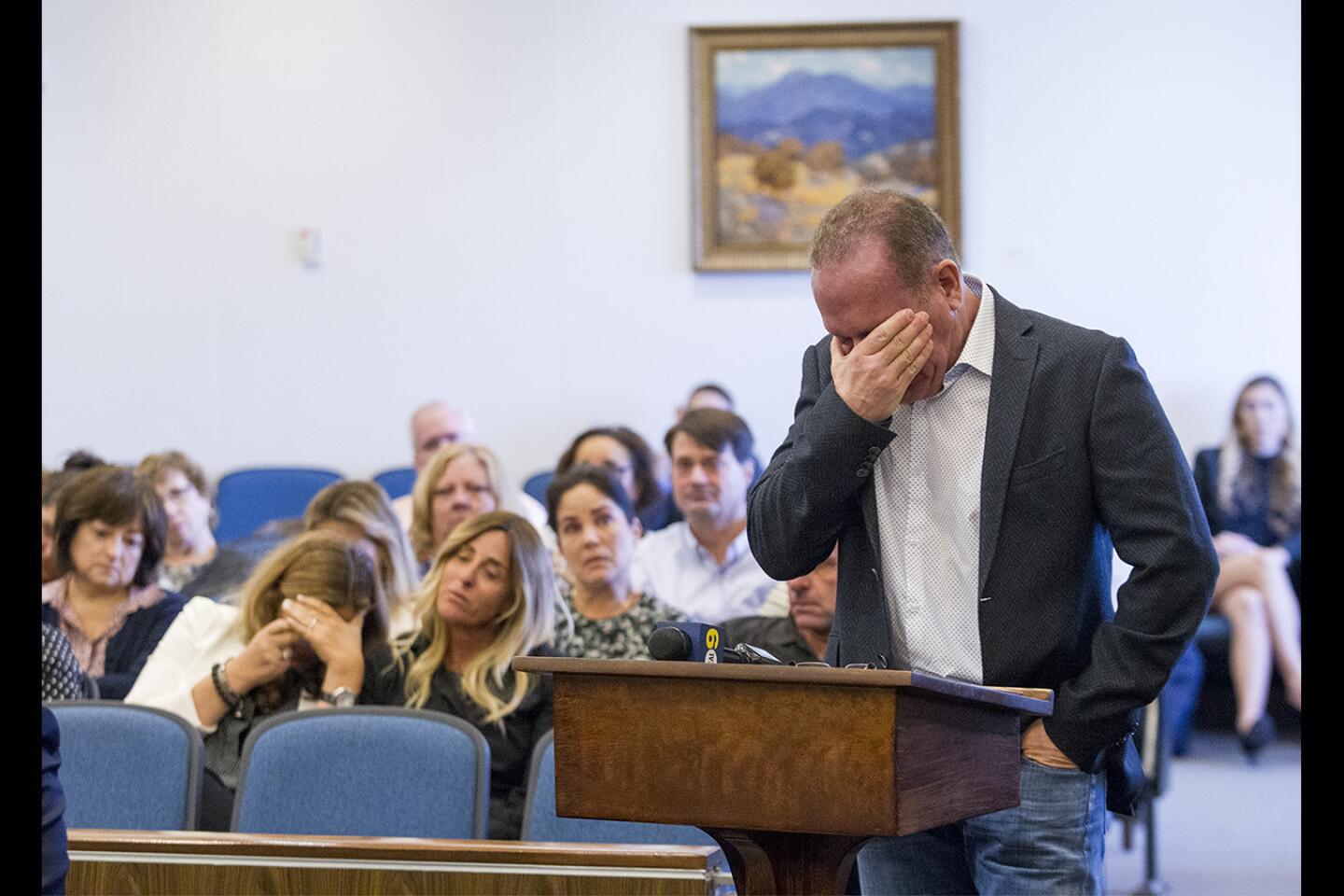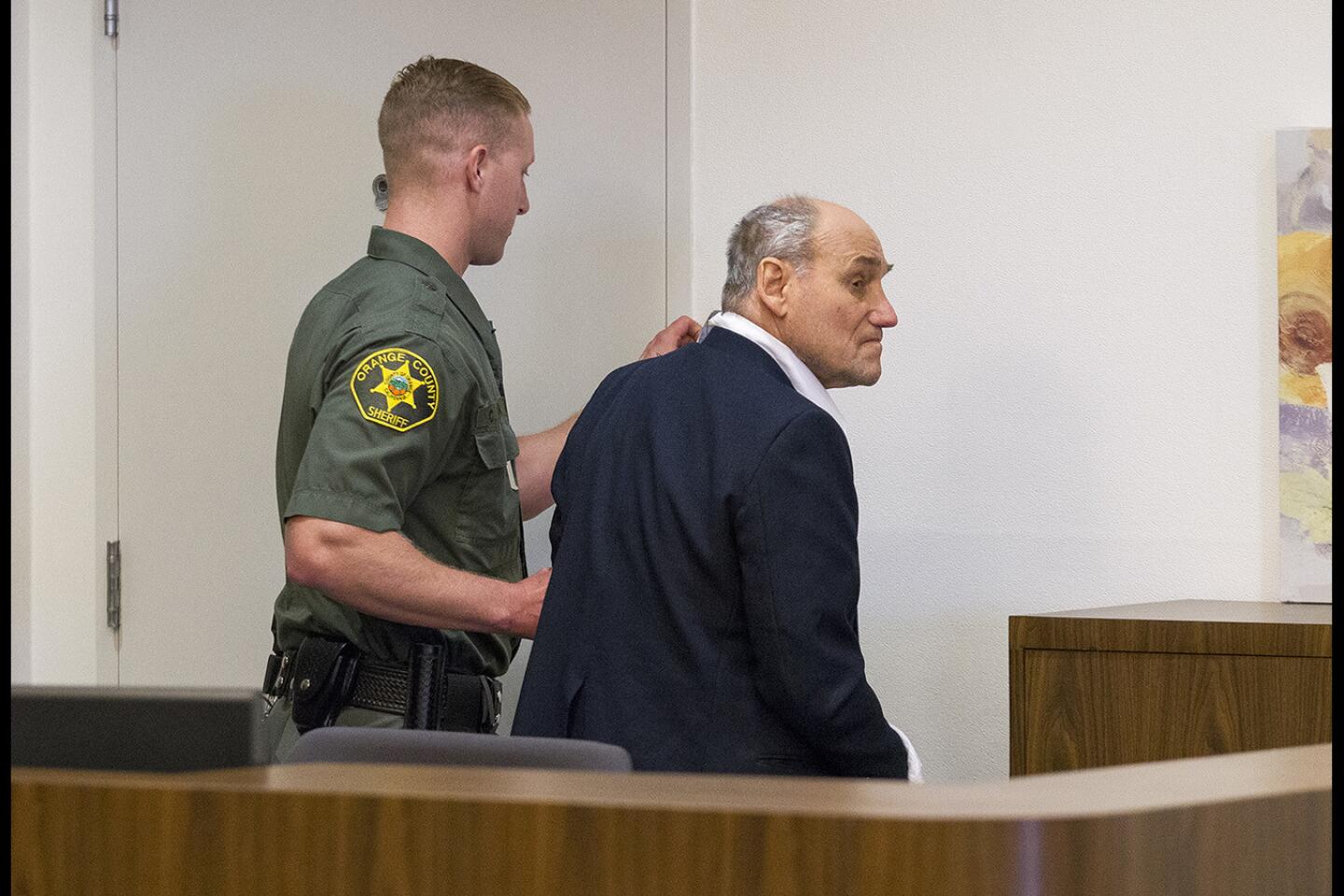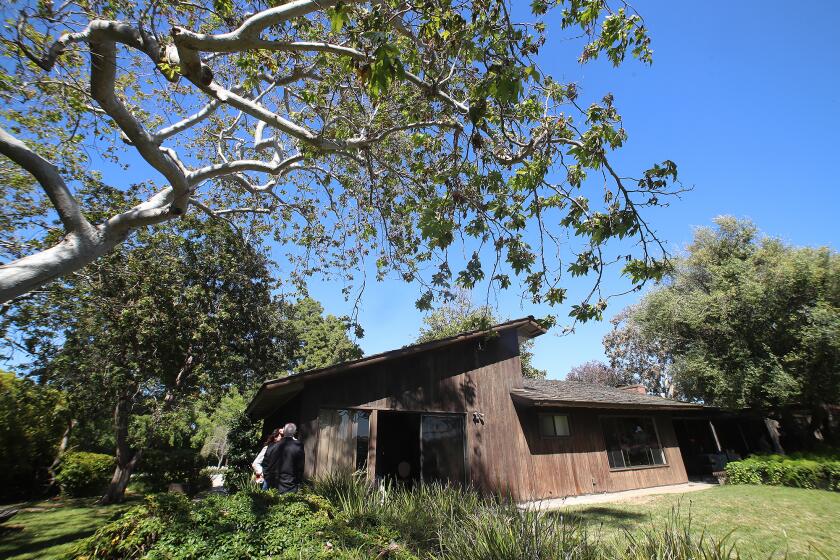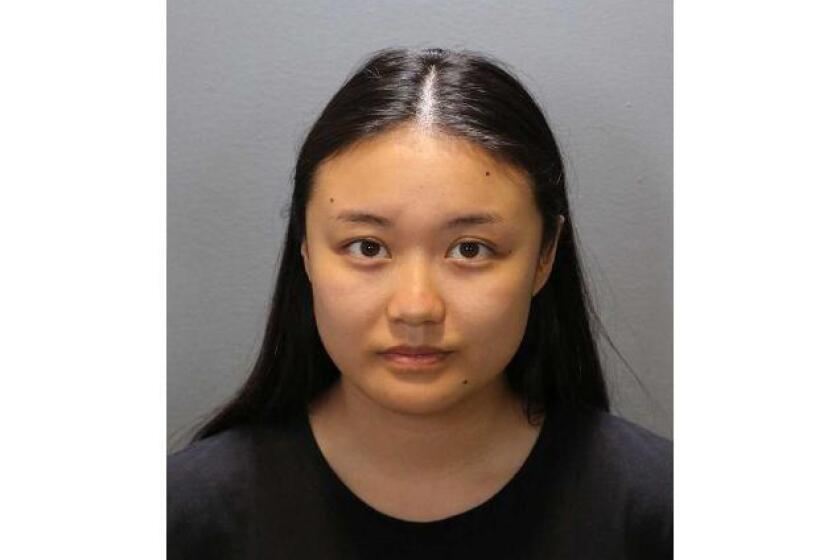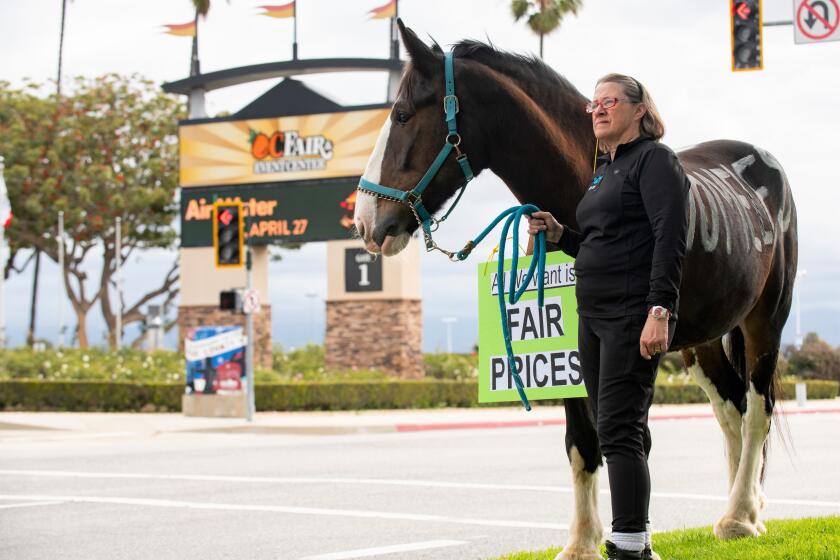Retired barber gets life in prison for murder of Newport Beach urologist
A 79-year-old retired barber was sentenced Friday to life in prison, plus 10 years, without the possibility of parole for fatally shooting a urologist inside the doctor’s Newport Beach office in 2013.
An Orange County Superior Court jury on Aug. 21 had swiftly found Stanwood Elkus of Lake Elsinore guilty of first-degree murder for making an appointment with Ronald Gilbert using a fake name and shooting the physician 10 times when he walked into the exam room.
Jurors also affirmed a special-circumstance allegation of lying in wait and a sentencing enhancement allegation of personal use of a gun, which added 10 years to Elkus’ life sentence.
Elkus had pleaded not guilty to the first-degree murder charge by reason of insanity, but jurors determined he was sane at the time of the killing. Had they found that he was insane, Elkus likely would have been sent to a mental health facility.
Gilbert’s family and friends shared memories of him Friday and took aim at Elkus, calling him “evil” and a “foolish coward” before Judge Patrick Donahue handed down the maximum sentence.
“There could be no punishment as great as the hate he has in his heart,” Gilbert’s childhood friend, Julie Harold Carter, said to the judge. “He’ll go to his grave knowing that he is reviled.”
Elizabeth Gilbert spoke quietly about how the laughter in her once-happy home was silenced when her husband was killed days before his 53rd birthday.
“The world was robbed of a model citizen … our children were robbed of an amazing father,” she said. “My dear husband was robbed of living his life.”
Halfway through family members’ statements, Elkus, who has hearing loss, removed the headphones that helped him hear the proceedings. He stared ahead, only occasionally glancing back to the podium where Gilbert’s family and friends stood to address the court. He placed the headphones over his ears again when it was time to hear his sentence.
Glenn Gilbert described his brother as brilliant, hilarious, witty, selfless and highly ethical. He said he has had difficulty moving past the anger stage of grief in the four years since his brother was killed, especially when confronted with Elkus’ justification for the murder — dissatisfaction with surgery performed 21 years earlier.
“The surgery that he had grievances about was performed successfully by another doctor but was botched by the murderer himself by his insistence on altering the necessary post-op protocol,” Glenn Gilbert said. “If the murderer wanted to kill the person responsible for this he should have just looked in the mirror and shot himself. The fact that the murderer would try to smear my brother to make a cover story for his own failings and inadequacies is an act as diabolical as I can think of.”
Senior Deputy District Attorney Matt Murphy told jurors at the outset of the roughly three-week trial that Elkus was seething over the surgery, performed in 1992, when he drove 55 miles to Gilbert’s office and shot him on Jan. 28, 2013.
Elkus blamed what he called a botched surgery for his incontinence, erectile dysfunction, diminished sex drive and ultimately the loss of his longtime girlfriend, whom he wanted to marry.
In 1992, Gilbert, then a young medical resident, worked with a team of doctors to diagnose Elkus with a urethral stricture — a narrowing of the urethra — at the veterans hospital in Long Beach after he complained of frequent urination, Murphy said.
Two other VA doctors performed the surgery — without Gilbert — to widen Elkus’ urethra, but Elkus held a grudge against Gilbert, Murphy said.
For decades, Elkus has bent the ear of doctors, neighbors and friends about the procedure. He showed up to urologists’ offices with a stack of medical records and a tape recording of his then-girlfriend discussing his sexual problems.
Elkus’ attorney, Colleen O’Hara, argued during the trial that her client had slipped into a state of psychosis the day of the shooting and wasn’t aware that his actions were legally or morally wrong.
Elkus, she said, has dementia and severe brain damage that affects his inhibitions and impulse control. She has said Elkus did not intend to harm the doctor when he made an appointment with him but that an anti-depressant he took weakened his inhibitions and he became psychotic. She argued that Elkus was delusional for decades leading to the killing.
During the trial, however, Murphy painted Elkus as clear-headed and diligent in his plan to harm Gilbert.
Murphy said Elkus created a living trust for his sister to assume control of his assets in case of his death or incarceration and printed out MapQuest directions to Gilbert’s Hoag Hospital-affiliated office on Superior Avenue.
In December 2012, Elkus bought a Glock 21, a .45-caliber handgun, and practiced shooting about 150 rounds with it, Murphy said.
On Jan. 22, 2013, Elkus drove to Gilbert’s office at Orange Coast Urology and made an appointment under the name Allen Gold. He was scheduled to return several days later.
Murphy alleged that Elkus began putting his affairs in order in the week before the shooting and knew the consequences of his actions. On a cabinet in his house he left copies of the trust, instructions for his rental properties and a reminder to pay the gardener. He packed a bag with his medication, loaded his gun and drove to Newport Beach.
At about 2 p.m. Jan. 28, Elkus checked in at Gilbert’s office and was led to an examination room. When Gilbert entered, he was shot 10 times in the chest, neck and side. All but one bullet went through his body, leaving holes in the wall.
Elkus opened the door holding a handgun and told a nurse, “I’m insane. Call the police,” Murphy said.
Gilbert, who lived in Huntington Harbour, died on the floor in the hallway outside the exam room, despite his colleagues’ attempt to save him.
“The only way I could fathom God would allow this to occur would be if he had wanted to show two extreme examples of the best of humanity and the worst of humanity so that we could use them as models to show people how they should be and how they should not be,” Glenn Gilbert said.
Twitter: @HannahFryTCN
All the latest on Orange County from Orange County.
Get our free TimesOC newsletter.
You may occasionally receive promotional content from the Daily Pilot.
